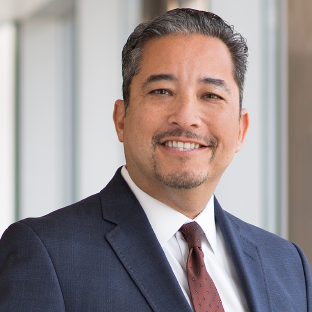As the healthcare industry struggles with ongoing staffing shortages—which are only projected to get worse—providers are looking for new ways to recruit top employees. At Cedars-Sinai Medical Center, that solution means recruiting from new populations.

The 958-bed Los Angeles hospital recently launched a program aimed at hiring veterans to fill open positions across the facility. It's just one part of the hospital's updated talent strategy, Andrew Ortiz, senior vice president of human resources and organization development and learning at Cedars-Sinai, said in an interview with FierceHealthcare.
"From my perspective, there are lots of way to address talent and to look for different populations, and one of those populations that was a natural fit was veterans," Ortiz said.
The Association of American Medical Colleges projects that the physician shortage could reach 100,000 by the year 2030. Staffing firm AMN Healthcare projects that more than a quarter of baby boomer nurses will retire within a year.
RELATED: More than 1 in 4 baby boomer nurses plan to retire in a year, survey shows
The consequence: Healthcare organizations have spent billions to fill the gaps, both in recruiting full-time workers and hiring temporary workers.
Cedars-Sinai hired Stephen Bettini, a veteran himself, to serve as a liaison between the hospital and veterans groups in the region for recruitment. Bettini, Ortiz said, also functions as an internal bridge, connecting with veterans who already work at the hospital.
RELATED: Editor's Corner—Geisinger's new-school/old-school approach to retain, recruit staff
The nonprofit academic healthcare organization already employs about 260 veterans, Ortiz said, and the initiative also signals to the current employees that veterans matter.
Other hospitals may want to follow Cedars-Sinai's lead. Veterans have diverse skill sets that the healthcare industry can apply to a number of areas, according to Bettini
"Their soft skills are just off the scale," Bettini said in an announcement about the initiative. "They are trained to work within diverse teams, to deal with adversity and to lead. They are very dedicated. Basically, they have everything the military instills in its people."
Having a specific point of contact, like Bettini, who can dedicate his full-time attention on the initiative adds focus to the program, Ortiz said. He said that the hospital's efforts to focus on veterans has led some of those who already work for Cedars-Sinai to volunteer to assist in recruitment and outreach themselves.
"They're a very mighty group that has come together and is willing to do recruitment for us," Ortiz said.
In addition to efforts to seek veterans to fill open positions, Cedars-Sinai recruitment strategy also focuses on technology to make it easier for potential hires to see open positions and apply.
Ortiz said the hospital was not always a leader in this area, and has made a significant investment in improving its tech to connect with good recruits.
RELATED: A state-by-state look at where doctors are needed the most
"We want to make it easier for busy professionals, who have other jobs and are employed at other places, to come to work here and apply for open positions," he said.
Not every strategy to address staffing shortages has to be brand new and innovative, Ortiz said. In addition to trying new tactics, Cedars-Sinai has also focused on creating staffing plans for different groups, so it has a number of potential solutions in place should a shortage arise.
"To the extent that we can focus people in those areas, it does enable us to make some great progress," he said.